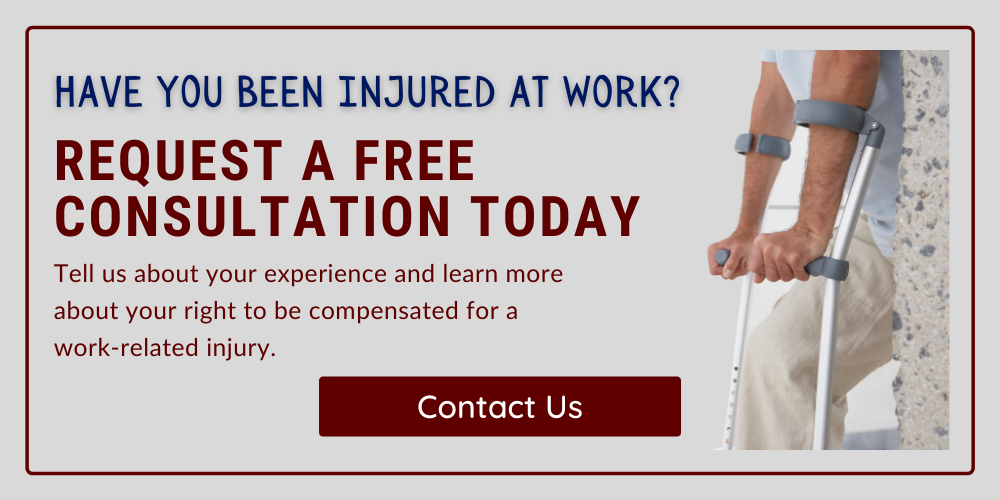Even if an injury happens at work, it does not necessarily mean that it is an injury that is compensable under the California Workers’ Compensation Act. Whether or not an injury is considered compensable under the Act is an important designation to make in the early stages of a workers’ compensation claim. If you were recently hurt in the workplace and you are wondering if your injury is compensable, an experienced workers’ compensation attorney can help you understand more about the validity of your potential claim.
The Law Office of Kneisler and Schondel – California Law Firm for Injuries at Work
Attorney Matthew Schondel has years of experience successfully obtaining workers’ compensation benefits on behalf of his clients in the state of California. If you have recently suffered a work-related injury and you are wondering if it is a compensable injury under California workers’ comp laws, the dedicated legal team at Kneisler & Schondel can help.
To find out more information about how our office can help you pursue your claim for workers’ compensation benefits, call us today to schedule a free consultation. There are crucial deadlines that must be met in order to receive workers’ compensation benefits, so it is important to move forward with your claim as soon as possible.
Compensable Injuries in Workers’ Compensation
In general, for an injury to be compensable under California’s workers’ compensation laws, the injury must have occurred to an employee who was injured while in the course of their employment. The injury in question must also have arisen out of the employee’s employment with their employer.
The “course of employment” refers to the place, time, and activity of the employee when the injury occurred. In other words, did the accident happen while the employee was at work and engaged in work-related activities? The other requirement, “arising out of employment,” relates to the nature of the risk that the employee was exposed to at the time they were injured. To be compensable, the injury must be related to a risk of employment, with certain exceptions.
One of the common reasons for a workers’ compensation case to be denied or disputed is due to a disagreement regarding whether the injury occurred in the course of or arose out of the worker’s employment. When a dispute over this issue occurs, it is essential to speak with a workers’ compensation attorney if you do not have one already since this can quickly become a complex litigation issue.
Traumatic Event Injuries
Traumatic incidents or events are among the most common categories of compensable workers’ compensation injuries. For example, if a worker up on a ladder, placing products onto shelves as one of his usual job duties, suddenly falls off the ladder and injures his back, that would be considered a traumatic event or a traumatic incident.
This type of injury is typically a one-time occurrence and usually has a clearly identifiable date of injury. For these injuries, seeking medical treatment right away as needed is crucial.
Once any immediate medical concerns have been addressed, it is also very important to formally report the injury to your supervisor or boss. Your employer should provide you with a claim form after you report your injury. If you do not receive a form from your employer, you can get a copy of the form here.
Repetitive Motion Injuries
Another common category of workers’ compensation injuries that are compensable under California’s workers’ compensation laws includes repetitive motion or repetitive use injuries. These injuries occur gradually over some time, typically due to repeated stress or overuse of a body part.
Some examples of repetitive motions common to some job positions that may lead to repetitive use injuries include typing, lifting, bending, and climbing. In addition, the constant use or operation of heavy equipment can also cause this type of work injury. Job tasks that can lead to these injuries include:
- frequent typing and computer work;
- meatpacking;
- working on an assembly line; and
- driving and operating forklifts.
Injuries that are commonly diagnosed as work-related repetitive use or repetitive motion injuries include carpal tunnel syndrome, tendonitis, bursitis, and sprains or strains. These injuries tend to impact the hands, wrists, back, shoulders, elbows, knees, and feet.
In many cases, there are no immediate or visible signs of a repetitive use injury; rather, an injured worker may experience pain, swelling, tingling, numbness, stiffness, and even loss of muscle strength. Over time, temporary or permanent soft tissue or nerve damage can occur.
Compensability of Repetitive Motion Injuries
Repetitive motion or repetitive use injuries can be more difficult to prove when it comes to an injured worker’s entitlement to benefits. One of the main reasons these types of cases are more commonly disputed is because, depending on the facts and circumstances of the case, the employer may argue that the worker’s injury was not actually caused by their employment.
This is a common defense used in cases where the injured worker has not worked for their employer for very long, so there may be differing medical opinions regarding the true origin and cause of the injury. If you have a repetitive use injury that you believe was caused by your job duties, it is wise to contact a workers’ compensation attorney promptly to ensure that you receive the benefits to which you are entitled.
Psychological or Psychiatric Injuries
In California, psychological work injuries are considered compensable work injuries. However, strict requirements must be met in order for a psychological injury to be compensable under California workers’ compensation laws. According to the California Labor Code, an injured worker must meet the following requirements to have a compensable claim:
- Have a mental disorder that has been formally diagnosed under accepted procedures;
- Either experienced a period of disability (unable to go to work or complete job tasks) or required medical treatment;
- Have worked for their employer for at least six months (not necessarily consecutive), unless the psychiatric injury occurred because of a sudden, extraordinary condition at work;
- Prove that the predominant cause of the psychiatric injury was due to actual events of employment—meaning when all causes are considered, working conditions were at least 51% responsible.
However, there is an exception for cases in which the worker with a psychological injury claim was a victim of violence at work or was directly exposed to a significant violent act. Under these circumstances, the injured worker will have a lower standard (35% to 40%) to establish the extent that actual events of employment were the predominant cause of the psychological injury. Cal. Labor Code § 3208.3.
Understandably, psychological and psychiatric work-related injuries can result in complex and difficult workers’ compensation cases. It is always a good idea to consult an experienced work comp attorney to discuss your potential claim for benefits before moving forward.
Death Due to Work-Related Injury or Illness
In the unfortunate event that an employee dies as a result of a work-related injury or illness, California law provides for certain death benefits to be paid to the worker’s surviving spouse, children, or other dependents. The death benefits available include reasonable burial expenses (not to exceed $5,000 for injuries that occurred before January 1, 2013, and not to exceed $10,000 for injuries occurring on or after January 1, 2013).
The exact amount available in death benefits depends on how many total and partial dependents survive the decedent worker. Currently, if there is just one total dependent, they will receive $250,000. If there are two total dependents, they will split a sum of $290,000. Three or more total dependents will split a sum of $320,000.
If partial dependents are involved, the annual support they received from the decedent worker will be factored into the calculations. Additionally, if there are one or more completely dependent minors, the death benefits will continue to be paid until the youngest minor turns 18; however, disabled minors will continue to receive benefits for life. Generally, death benefits are paid out in increments over time (monthly or weekly).
Finally, any proceedings for the collection of death benefits must be commenced within one year from the injured worker’s death, when the death occurs within one year of the date of injury, or within one year from the last date any benefits were provided or one year from the death when the death occurs more than one year after the date of injury. No proceedings can be commenced more than 240 weeks from the date of injury.
A workers’ compensation injury or illness that results in the death of a loved one is a challenging and difficult event that no one can truly prepare for. This is another scenario in which it is advisable to contact an experienced workers’ compensation attorney familiar with death benefits as soon as possible so that you and your family can ensure that you receive the benefits you are entitled to without worrying about filing deadlines and litigation.
Workers’ Compensation and Compensable Injuries in California
The Law Office of Kneisler & Schondel is here to assist you with your claim for workers’ compensation benefits. Contact us today to schedule a free consultation and to get started with the process of fighting for the benefits you deserve.

